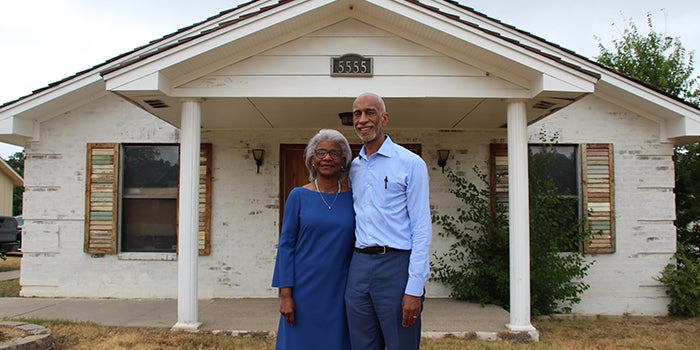
by Jorge Gomez • 5 min read
First Liberty and the law firm McDermott, Will & Emery are defending White Rock Chapel, an African-American church near Dallas. This week, we sent a letter to the city of Addison, Texas, which is using zoning regulations to block this small church from living out its faith.
Two years ago, the church applied for building permits so it could make improvements to its historic property and gather for worship and Bible study, as well as to serve the surrounding community. But the city refused to grant the permits unless the congregation obtained zoning approval. After extensive negotiations with hostile neighbors, the church applied for a Special Use Permit, which was unanimously approved by the City’s Planning and Zoning Commission. However, in July the City Council voted 5-2 to deny the permit.
The First Amendment and federal law protect the right of churches to operate free from unreasonable and intrusive government interference. Our letter explains:
“Because the Council denied White Rock Chapel’s Permit, it barred any possibility for White Rock Chapel to function and exist. Such a deliberate prohibition is in direct violation of state and federal law and constitutionally protected freedoms. The Council must immediately approve of a Permit that will allow White Rock Chapel to engage in religious and educational activities.”
The Rich History and Legacy of White Rock Chapel
White Rock Chapel was founded by freed slaves more than a hundred years ago. In 2000, the Texas Historical Commission designated 5555 Celestial Road in Addison, the home of White Rock Chapel, a historic location and granted it a Texas State Historical Marker. The church’s legacy is one of racial reconciliation and understanding during turbulent times during and following the Civil War. The present rendition of White Rock Chapel of Addison was established as a private, nonprofit cultural and spiritual convening place in 2018.
The historic legacy that White Rock Chapel seeks to preserve and celebrate began during the Civil War. Some North Texas plantation owners opened the way for circuit preachers to organize worship and prayer meetings for enslaved men, women and children.
Several churches grew out of those meetings in the Upper White Rock area, according to the family lore of the descendants of some who were enslaved on the nearby Coit, Caruth and Obier Plantations. They bought land, built homes, established farms and built churches and a cemetery.
In 1884, families of the White Rock Chapel CME Church purchased an acre on the shady banks of the creek and built their first building of rough-hewn logs. They worshipped there for 34 years. Unfortunately, the location was subject to devastating flash flooding. In 1918, Sidney Smith Noell, who owned more than 1,200 acres in the area, donated two acres to the congregation, so they could move to higher ground away from the creek.
In this undated photograph below, the congregation posed in front of their building:

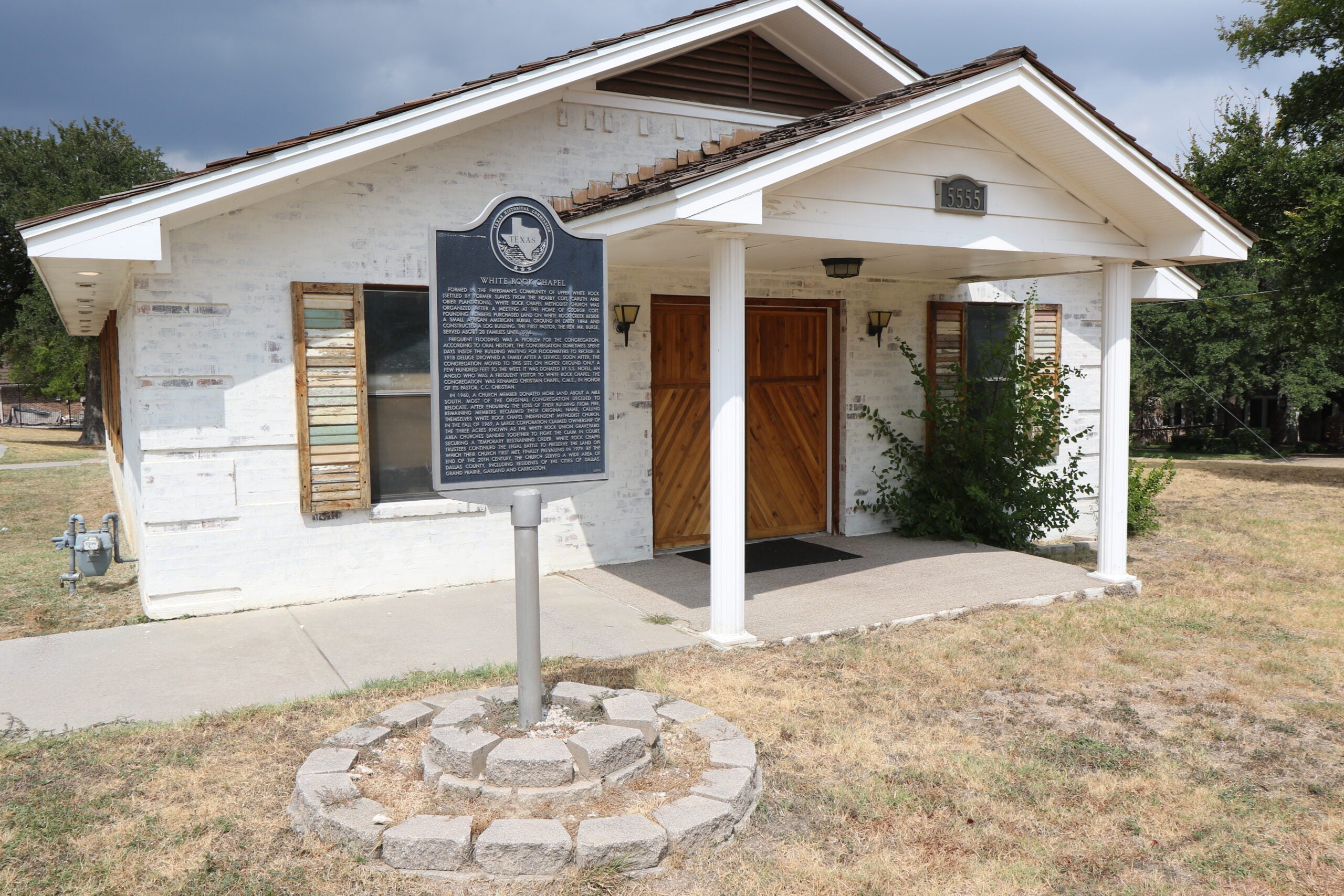
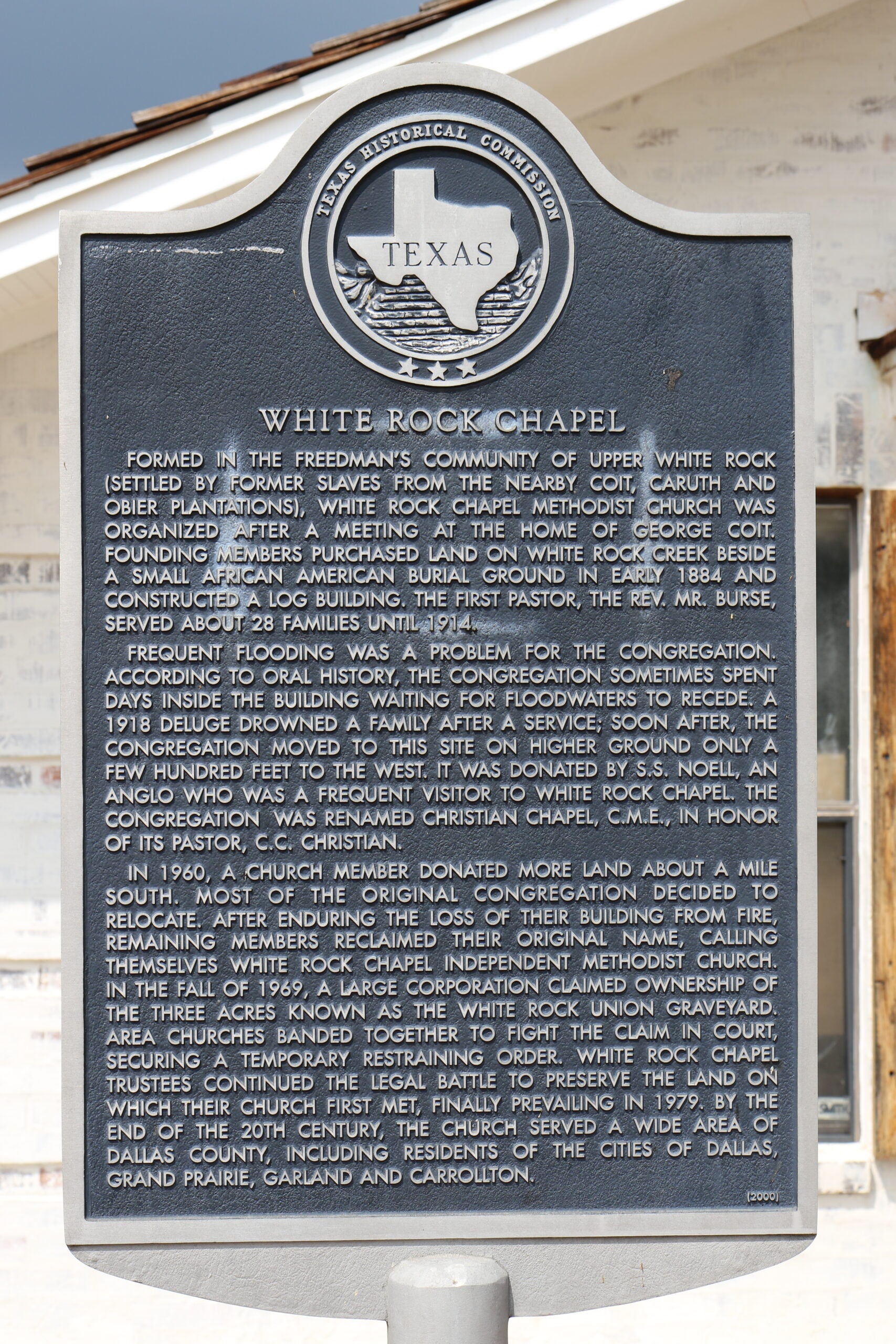
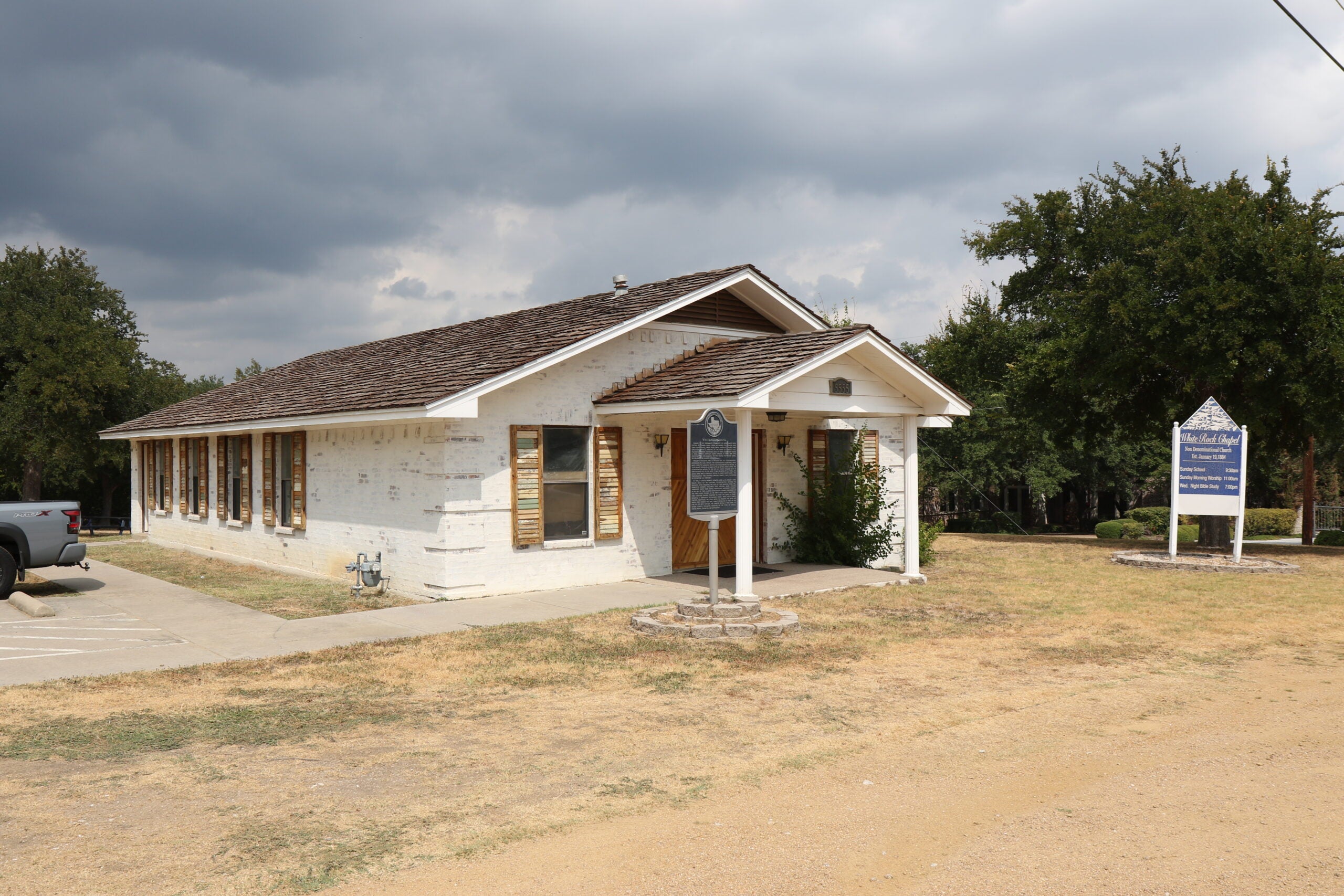
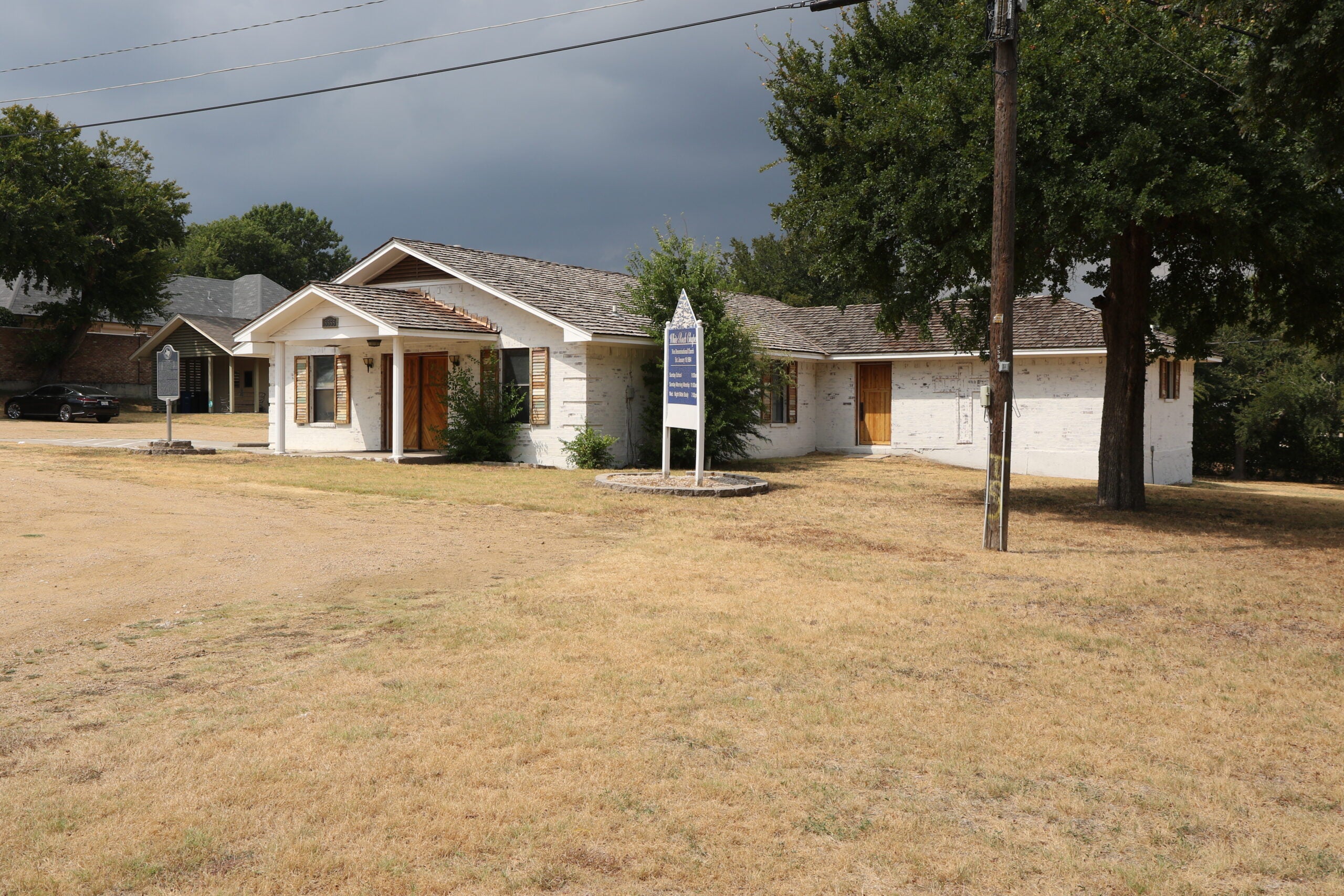
The congregation lost one building to a storm, and another burned down in 1960 in a suspected arson. Following the fire, the congregation worshipped in the tiny 1918 parsonage for 21 years, until the current building was dedicated in 1981. The parsonage was replaced by the current fellowship hall in 2009.
White Rock Chapel existed long before the upscale neighborhood that now surrounds it. The history it represents should be honored. This church should be a reminder to the city of Addison that unity, diversity and religious freedom are core values that strengthen our nation.
White Rock Chapel has followed the law and followed all the necessary procedures. It’s the city’s turn to do the same, do what’s right and let go of bias and religious hostility. The city council should respect that the church fulfilled the requirements as acknowledged by the Planning and Zoning Commission and let it serve the community.